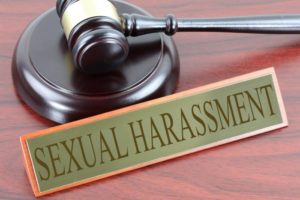
Seeking safety after abuse? Explore legal aid and support programs to find secure housing. This comprehensive guide provides insights, resources, and expert advice.
Introduction
Navigating life after abuse can be overwhelming, but finding safe housing is a crucial step toward healing and rebuilding. Legal aid and support programs offer invaluable assistance to survivors, ensuring they have access to resources and information to secure stable accommodations. In this guide, we’ll delve into the various avenues available for finding safe housing after abuse, highlighting the legal aid and support programs that can make a difference in your journey to safety and recovery.
Understanding the Importance of Safe Housing
Safe housing is not just a matter of physical shelter; it’s a fundamental aspect of rebuilding one’s life after experiencing abuse. Having a secure and supportive environment is essential for survivors to regain a sense of stability and autonomy.
The Role of Legal Aid in Securing Safe Housing
Legal aid programs play a vital role in helping survivors navigate the complexities of securing safe housing. From obtaining restraining orders to advocating for tenant rights, legal aid attorneys provide crucial support and guidance throughout the process.
Exploring Support Programs for Survivors
In addition to legal assistance, survivors can benefit from various support programs tailored to their unique needs. These programs offer counseling, case management, and resources to empower survivors as they transition to independent living.
Overcoming Barriers to Safe Housing
Despite the availability of resources, survivors often face significant barriers when seeking safe housing. Financial constraints, lack of affordable housing options, and fear of retaliation from abusers can complicate the process. However, with the right support and advocacy, survivors can overcome these obstacles.
Empowering Survivors Through Education
Education is a powerful tool for empowering survivors to advocate for themselves and access the resources they need. Workshops, seminars, and online resources provide valuable information on housing rights, legal protections, and available support services.
Leveraging Community Resources
Communities play a crucial role in supporting survivors and promoting safety. From local shelters to grassroots organizations, there are numerous community resources available to provide assistance and solidarity to survivors on their journey to safety.
Securing Emergency Shelter
For survivors in immediate danger, emergency shelters offer a lifeline. These temporary accommodations provide safety, support, and access to essential services while survivors plan their next steps toward long-term housing stability.
Finding Long-Term Housing Solutions
Transitioning from emergency shelter to long-term housing requires careful planning and coordination. Rental assistance programs, transitional housing options, and subsidized housing initiatives can help survivors secure stable accommodations and rebuild their lives.
Legal Aid in Family Court Proceedings
Family court proceedings can be daunting for survivors seeking protection from abusive partners. Legal aid attorneys offer representation and advocacy to ensure survivors’ voices are heard and their rights are protected in custody, visitation, and protective order hearings.
Addressing Legal Barriers to Housing
Legal barriers such as eviction records and housing discrimination can pose significant challenges for survivors seeking safe housing. Legal aid programs work to address these barriers through advocacy, policy reform, and litigation to ensure survivors have equal access to housing opportunities.
Breaking the Cycle of Abuse Through Prevention Efforts
In addition to providing support and assistance to survivors, legal aid and support programs engage in prevention efforts to break the cycle of abuse. By raising awareness, promoting education, and advocating for systemic change, these programs work to create safer communities for all.
FAQs
How can I find legal aid assistance in my area?
Legal aid organizations typically offer free or low-cost services to eligible individuals. You can search online or contact your local bar association for referrals to legal aid resources in your community.
What should I do if I’m in immediate danger and need emergency shelter?
If you’re in immediate danger, call emergency services or a local domestic violence hotline for assistance. Emergency shelters provide safe accommodations and support services for survivors in crisis.
Can legal aid help me obtain a restraining order against my abuser?
Yes, legal aid attorneys can assist you in filing for a restraining order to protect yourself from further abuse. They can guide you through the legal process and advocate on your behalf in court proceedings.
Are there programs available to help with housing costs for survivors?
Yes, there are rental assistance programs and housing subsidies available to survivors to help cover housing costs. These programs vary by location, so it’s essential to research resources available in your area.
What rights do survivors have when it comes to housing discrimination?
Survivors have legal protections against housing discrimination based on their status as survivors of domestic violence. Legal aid programs can provide guidance on asserting your rights and pursuing legal remedies if you experience discrimination.
How can I support survivors in my community?
You can support survivors by volunteering at local shelters, donating to organizations that provide services to survivors, and advocating for policies that promote safety and justice for survivors.
Conclusion
Finding safe housing after abuse is a critical step toward healing and reclaiming your life. Legal aid and support programs offer essential resources and assistance to survivors, empowering them to navigate the challenges of securing stable accommodations. By accessing these resources and building a supportive network, survivors can embark on a journey toward safety, healing, and independence.







